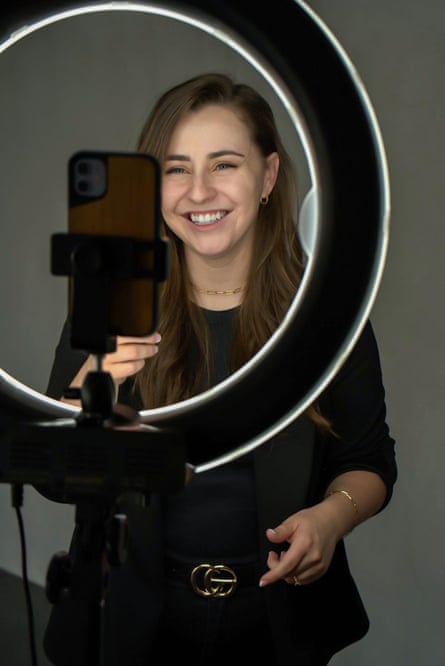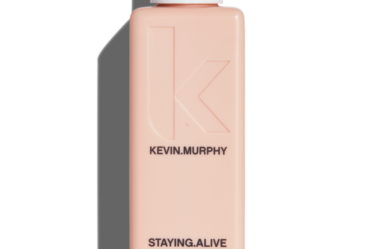
Audrey Ganus was running late for her SmileDirectClub appointment on Monday, so she called from the car to let a receptionist know that she might show up five minutes past her appointment time. When she heard an automated voicemail say that the company had shut down and was no longer offering services, she assumed the phone number had changed – she’d received a confirmation email just two days beforehand. But when she arrived at the office, she saw the doors were locked, the lights were off, and items were “scattered everywhere” inside, as if workers had left in a hurry.
Things got worse when Ganus, who is 22 and lives in Palm Harbor, Florida, tried to log onto her patient portal. “I was supposed to have records of everything: my retainers, 3D scans of my teeth, progress reports,” Ganus said. “There’s nothing. Now I don’t even have any proof that I’ve ever had my smile straightened. No other doctor is willing to help me without that proof, so the only way I can get help is if I start all over again, and have my teeth straightened for three, four, or five thousand dollars. SmileDirectClub left me with no options, and I’m freaking out a bit.”
Ganus is one of the more than 2 million customers who have turned to SmileDirectClub in the past decade, seeking teeth aligners that were advertised as faster and cheaper than braces. Like countless others, she has been left in the lurch after the company ceased operations last week, after filing for bankruptcy in September.
In a statement posted to its website, SmileDirectClub apologized to customers, saying it had “made the incredibly difficult decision to wind down its global operations, effective immediately”. Customer service would no longer be available, including its supposed “lifetime smile guarantee”, which promised unlimited customer service support, even after someone finished their aligner treatment.
That promise was one of the main reasons Ganus says she picked the company in the first place. “I was supposed to have 24/7 care, and that was taken away from me,” she said.
In its statement, SmileDirectClub wrote that customers on payment plans were “expected to continue to make all monthly payments until payment has been made in full per the terms of our SmilePay program”, despite no longer receiving care or products from the brand. The aligners were sold online or in-store for $1,850 apiece, making SmileDirectClub an appealing choice for lower-income or uninsured customers who might not be able to afford braces, which can cost between $3,000 and $10,000.
“I think it’s inconsiderate and messed up that they are leaving people in the dark,” Ganus said. “People don’t just have money to throw around, and teeth are important.”
Rebekka Reynolds, a 29-year-old from Oklahoma, paid $2,000 in full for her aligners in October. Two days later, she learned that the company had filed for bankruptcy. “I thought, ‘Well, OK, that doesn’t mean the company has been shutting down, this has just been a weird year for companies,” Reynolds said.
Reynolds says that she never received any communication from SmileDirectClub about the closure. “I found out because a bunch of my TikTok followers started tagging me in videos, asking me what I was going to do,” she said. “Then I looked it up and found out. That kind of blows my mind.”
Some customers have said they only bought into SmileDirectClub due to intense, recent marketing campaigns. Kat Fernandez, a 37-year-old from south Texas, said she had recently made a purchase after receiving a “really enticing” promo for the brand’s aligners at the sale price of $995.
“There was this letter from the CEO himself, saying it was a discount just for me, which I knew was BS,” Fernandez said. “Regardless, the deal was too good to be true, so I pulled the trigger on November 3. I did the impressions process, sent them out, and was waiting, but then I woke up to see that it’s no longer a company.”

Fernandez had paid in full, using her HSA funds, and she is now trying to dispute the charge. “I did not imagine that a big company like this would screw everyone over, overnight,” She said. “It infuriates me to know that they were aggressively pursuing [customers] so close to when they were going to pull out. I feel scammed and conned.”
Before closing, SmileDirectClub faced numerous criticisms from orthodontists, with the American Academy of Orthodontists (AAO) filing complaints with 36 state dental boards, alleging specific regulatory and statutory violations. “The AAO has long held the position that it is in the best interest of the public to have orthodontic treatment conducted under the direct, ongoing supervision of a licensed orthodontist,” the organization wrote in a press release. “Orthodontic treatment is a professional service and a complex medical process, not a product or device.”
In 2019, the AAO said that if aligners are not properly monitored by dentists, issues such as tooth and gum loss and changed bites could occur – sometimes not immediately, but over time.
A 2020 New York Times investigation found that the brand “worked to limit information about customer satisfaction”, requiring some customers to sign NDAs before receiving refunds, prohibiting them from speaking about their experience and requiring they delete negative posts about SmileDirect on social media. The company also sued various state dental boards for imposing regulations that would make SmileDirectClub harder to operate.
Despite challenges, the company grew to an estimated $8.9bn valuation, according to the newspaper, and courted celebrity endorsements from Queer Eye’s Jonathan Van Ness and the Love Island host Arielle Vandenberg. For some customers, it felt like the only way to harness what a SmileDirectClub press release called the “transformational power of a smile”.
But now, users have less to smile about. “I don’t have the option to finance Invisalign,” Ganus said. “This was a device that worked for lower-income families or people who can’t afford to pay five to eight grand for orthodontics. This hurts millions of people.”



